Miyabi knives are renowned for their exceptional craftsmanship and the...
Read MoreDamascus knives are highly regarded for their exceptional craftsmanship and stunning aesthetics. The term “Damascus” refers to a distinctive blade pattern that is achieved through a centuries-old metalworking technique. These knives are characterized by their unique, wavy patterns on the blade, which are created by layering and folding different types of steel together.
The process of making Damascus knives involves forge-welding multiple layers of high-carbon and low-carbon steel, which are then repeatedly folded, hammered, and shaped. This meticulous process results in a blade with exceptional strength, durability, and sharpness. The multiple layers of steel not only contribute to the distinct pattern but also create a blade that is resistant to chipping and capable of retaining a sharp edge for longer periods.
Damascus knives are highly versatile and are used for a wide range of culinary tasks, from precise slicing and dicing to heavier cutting and chopping. They are favored by professional chefs and culinary enthusiasts alike for their superior performance and stunning appearance.
Beyond their functional qualities, Damascus knives are often considered works of art. The intricate patterns on the blade create a visually captivating and unique piece that adds elegance to any kitchen. The artistry and craftsmanship involved in making Damascus knives have deep historical roots and are associated with the tradition of blade-making in regions such as Japan and the Middle East.
When selecting a Damascus knife, it’s important to consider factors such as the quality of the steel, the skill of the craftsman, and the overall design and ergonomics of the knife. With proper care and maintenance, a well-crafted Damascus knife can be a cherished tool in the kitchen for many years, combining both functional performance and artistic beauty.
Tags: damascus knives for sale, best damascus knives, damascus knives blades, japan damascus knives.
Is Damascus the best knife?
While Damascus knives are highly regarded and prized for their craftsmanship and aesthetics, it’s important to note that the “best” knife is subjective and dependent on individual preferences and specific use cases. Damascus knives offer a unique combination of beauty, durability, and performance, but they may not be the ideal choice for everyone.
Here are a few factors to consider when determining the best knife for you:
- Purpose: Consider the intended use of the knife. Different knives excel at specific tasks. For example, a chef’s knife is versatile and can handle a wide range of cutting, slicing, and chopping tasks, while a paring knife is ideal for intricate work.
- Blade Material: Damascus knives often use a high-carbon steel core surrounded by layers of softer steel. This combination provides a balance of sharpness, edge retention, and durability. However, there are other high-quality knife steels available, such as VG10, VG-MAX, or AUS-10, that also offer excellent performance.
- Design and Ergonomics: Look for a knife that feels comfortable in your hand and has a design that suits your preferences. Consider factors such as handle material, weight, and balance, as these can affect the overall usability and enjoyment of the knife.
- Maintenance and Care: Some knives require more maintenance than others. Damascus knives, for example, may require extra attention to prevent rust or tarnish on the exposed steel layers. Consider your willingness to invest time and effort into knife maintenance.
- Budget: Damascus knives tend to be more expensive due to the craftsmanship involved in their production. Determine your budget and explore options within that range. Remember that there are high-quality knives available at various price points.
Ultimately, the best knife for you will depend on your personal preferences, intended use, and budget. It’s recommended to try out different knives or consult with experts to find the knife that suits your specific needs and provides the best overall experience in the kitchen.
What is a good brand of Damascus knife?
There are several reputable brands known for producing high-quality Damascus knives. It’s important to note that the quality of Damascus knives can vary, so it’s recommended to consider factors such as the brand’s reputation, craftsmanship, and customer reviews. Here are a few well-regarded brands that are known for their Damascus knives:
- Shun: Shun is a renowned Japanese knife brand that offers a range of Damascus knives. They are known for their exceptional craftsmanship, attention to detail, and use of high-quality materials. Shun Damascus knives often feature a VG-MAX steel core and a Damascus cladding, combining performance and beauty.
- Miyabi: Miyabi is another respected Japanese brand that produces exquisite Damascus knives. Their knives are handcrafted in Seki, Japan, and are known for their exceptional sharpness and elegant designs. Miyabi knives often feature a VG10 or SG2 steel core and multiple layers of Damascus cladding.
- Bob Kramer: Bob Kramer is a master bladesmith known for his expertise in creating Damascus knives. His knives are highly sought after and are prized for their superb craftsmanship and performance. Each Bob Kramer Damascus knife is individually crafted and reflects the meticulous attention to detail that Kramer is known for.
- Dalstrong: Dalstrong is a brand that offers a variety of Damascus knives at different price points. They are known for their visually striking designs and high-performance blades. Dalstrong Damascus knives often feature VG10 or AUS-10V steel cores with Damascus cladding.
- Kamikoto: Kamikoto is a brand that specializes in traditional Japanese knives, including Damascus knives. They offer handcrafted knives with a focus on quality and precision. Kamikoto Damascus knives often feature high-carbon stainless steel cores and Damascus cladding.
These brands are just a few examples, and there are many other reputable manufacturers of Damascus knives. It’s always a good idea to research and read customer reviews to find a brand and specific model that best suits your needs and preferences.
Is Damascus steel still the best?
The question of whether Damascus steel is still considered the best is subjective and open to debate. While Damascus steel has a rich historical significance and is highly regarded for its beauty and craftsmanship, the definition of what makes a knife the “best” can vary depending on individual preferences, intended use, and advancements in steel technology.
Advancements in metallurgy and steel manufacturing techniques have led to the development of high-performance stainless steels and other alloy compositions that offer exceptional hardness, edge retention, and corrosion resistance. These modern steels can rival or even surpass the performance of traditional Damascus steel.
However, Damascus steel continues to be highly valued for its unique aesthetic appeal, with its intricate patterns and visual character. Many knife enthusiasts appreciate the artistry and craftsmanship that goes into creating Damascus blades.
Ultimately, the choice between Damascus steel and modern steels depends on personal preferences, intended use, and the specific qualities one values in a knife. Both Damascus and modern steels have their advantages and disadvantages, and it’s essential to consider factors such as sharpness, edge retention, ease of maintenance, and overall performance when determining the best steel for your needs.
What is the best Damascus pattern?
The “best” Damascus pattern is subjective and can vary based on individual preferences and aesthetic tastes. Damascus steel is known for its unique and intricate patterns, which are created through the layering and folding of different types of steel. There are various Damascus patterns available, and each has its own visual appeal and charm.
Here are a few popular Damascus patterns:
- Twist Pattern: The twist pattern is characterized by its swirling or twisted design. It creates a captivating visual effect and adds a sense of dynamism to the blade.
- Raindrop Pattern: The raindrop pattern resembles raindrops falling on the surface of the blade. It features small, rounded shapes that create an organic and textured appearance.
- Feather Pattern: The feather pattern showcases long, flowing lines that resemble the delicate and graceful feathers of a bird. It creates a sense of elegance and movement.
- Random Pattern: The random pattern, as the name suggests, does not follow a specific design but appears more natural and irregular. It can feature a mix of various patterns and textures, resulting in a unique and unpredictable visual effect.
- Basket Weave Pattern: The basket weave pattern resembles the interwoven strands of a basket. It creates a geometric and symmetrical design that adds a touch of sophistication.
It’s important to note that the quality and execution of the Damascus pattern can vary depending on the skill of the bladesmith and the specific manufacturing techniques used. Each pattern has its own appeal, and the “best” pattern ultimately comes down to personal preference and the visual effect that resonates with you. It’s recommended to explore different Damascus patterns and find the one that captures your interest and aligns with your aesthetic sensibilities.
Benefits of using Damascus knives
Using Damascus knives offers several benefits that contribute to their popularity and desirability among chefs and knife enthusiasts. Here are some key benefits of using Damascus knives:
- Exceptional Strength and Durability: Damascus knives are made by layering and folding different types of steel together, resulting in a blade that is exceptionally strong and durable. This makes them well-suited for withstanding the rigors of daily kitchen use.
- Excellent Edge Retention: Damascus knives typically have a high-quality steel core that holds a sharp edge for longer periods. This means less frequent sharpening and a longer lifespan before requiring maintenance.
- Unique Aesthetics: One of the most distinguishing features of Damascus knives is their visually stunning and intricate patterns on the blade. The layering and folding of different steels create a beautiful and distinct Damascus pattern, making each knife a unique work of art.
- Versatility: Damascus knives come in various shapes and sizes, allowing for versatility in the kitchen. Whether it’s slicing, dicing, chopping, or intricate tasks, there is a Damascus knife suited for each purpose.
- Balanced Performance: Damascus knives often strike a balance between hardness, toughness, and flexibility, resulting in a blade that can handle a wide range of cutting tasks with precision and control.
- Comfortable and Ergonomic: Many Damascus knives feature well-designed handles that provide a comfortable grip, reducing fatigue and improving overall control and maneuverability during use.
- Prestige and Craftsmanship: Owning a Damascus knife signifies an appreciation for traditional craftsmanship and the artistry involved in creating these blades. It adds a sense of prestige and uniqueness to your kitchen collection.
It’s important to note that the specific benefits of Damascus knives can vary depending on the quality of the blade, the steel used, and the craftsmanship. It’s advisable to choose a reputable brand or artisan to ensure you’re getting a high-quality Damascus knife that delivers the desired performance and longevity.
How long do Damascus knives last?
The lifespan of a Damascus knife can vary depending on several factors, including the quality of the blade, the steel used, the maintenance and care provided, and the frequency and intensity of use. With proper care and maintenance, a well-crafted Damascus knife can last for many years and even decades.
Damascus knives are typically made using high-quality steels that offer excellent strength and durability. However, they are not immune to wear and tear, and their lifespan can be influenced by factors such as:
- Frequency of Use: The more frequently a knife is used, the more it will experience wear on the blade. Regular, heavy use can lead to the eventual dulling or thinning of the edge.
- Maintenance and Care: Proper maintenance and care play a crucial role in prolonging the lifespan of any knife. Regularly cleaning and drying the knife, storing it properly, and sharpening it as needed will help maintain its performance and longevity.
- Cutting Surface: The cutting surface used can affect the wear on the blade. Using a proper cutting board made of wood, bamboo, or plastic is recommended to minimize the risk of damaging the blade.
- Techniques and Cutting Style: Certain cutting techniques, such as excessive twisting or prying, can put extra strain on the blade and reduce its lifespan. It’s important to use the knife in a proper cutting motion without exerting excessive force or torque.
- Quality of Craftsmanship: The quality of the Damascus knife itself plays a significant role in its longevity. A well-made knife from reputable brands or skilled artisans will generally be more durable and have a longer lifespan.
It’s worth noting that even with proper care, Damascus knives may require occasional maintenance, such as sharpening and refinishing, to maintain their optimal performance. Regularly inspecting the knife for any signs of damage or wear and addressing them promptly can help extend its lifespan.
Overall, while Damascus knives can last for many years, their longevity is influenced by various factors, and individual experiences may vary. By investing in a high-quality knife and providing it with proper care and maintenance, you can maximize its lifespan and enjoy its performance for an extended period.
How to use Damascus knives safely
Using Damascus knives safely is important to prevent accidents and ensure a pleasant and efficient cooking experience. Here are some tips for safely using Damascus knives:
- Handle with Care: Treat the knife with respect and handle it carefully. Avoid dropping the knife or subjecting it to excessive force or impact, as this can damage the blade or cause it to become dull.
- Grip the Knife Properly: Hold the knife with a firm and comfortable grip. Ensure that your fingers are securely wrapped around the handle and that your thumb is positioned on the blade or the bolster for stability and control.
- Use the Right Cutting Surface: Always use a proper cutting board made of wood, bamboo, or plastic. Avoid cutting on hard surfaces like glass, marble, or metal, as they can damage the blade. The cutting board should be stable and secure to prevent slips or accidents.
- Pay Attention and Focus: Maintain your focus and concentration while using the knife. Avoid distractions and ensure you have a clear and uncluttered workspace to minimize the risk of accidents.
- Proper Cutting Technique: Use the appropriate cutting technique for the task at hand. For example, when chopping, use a rocking motion with the tip of the knife anchored on the cutting board, keeping your fingers safely tucked away from the blade. Practice proper slicing and dicing techniques to maintain control and minimize the risk of injury.
- Avoid Excessive Force: Let the knife do the work. Applying excessive force or using a sawing motion can cause the knife to slip or increase the risk of losing control. Instead, use a smooth and controlled cutting motion, allowing the sharpness of the blade to effortlessly cut through ingredients.
- Store Safely: When not in use, store the knife in a knife block, sheath, or a designated knife storage area. This will protect the blade from damage and prevent accidental cuts or injuries when reaching for other items.
- Keep Children and Pets Away: Ensure that Damascus knives are kept out of the reach of children and pets. Store them securely in a location where they cannot be accessed without supervision.
- Sharpen Carefully: When sharpening a Damascus knife, exercise caution and follow proper sharpening techniques. If you are not confident in your sharpening skills, it’s advisable to seek the assistance of a professional or use sharpening tools designed specifically for Damascus knives.
By following these guidelines, you can use Damascus knives safely and minimize the risk of accidents or injuries. Remember that practicing good knife skills and maintaining a cautious approach are essential for safe and enjoyable cooking experiences.
How to clean Damascus knives
Cleaning Damascus knives properly is essential to maintain their performance and longevity. Here are some steps to clean your Damascus knife effectively:
- Rinse Immediately: After use, rinse the knife with warm water to remove any food particles or debris from the blade. Avoid using hot water, as it can damage the tempering of the steel.
- Use Mild Dish Soap: Apply a small amount of mild dish soap to a sponge or soft cloth. Gently scrub the blade, ensuring you cover the entire surface. Be cautious not to scrub too vigorously, as it can cause scratches or damage the Damascus pattern.
- Avoid Harsh Abrasives: Avoid using harsh scrubbing pads or abrasive cleaners that can scratch or dull the blade. Damascus steel is typically more susceptible to scratching than other types of steel, so use gentle cleaning methods.
- Pay Attention to the Edge: When cleaning, be mindful of the sharp edge of the knife. Clean along the blade’s length, taking care not to run your fingers along the edge to avoid accidental cuts.
- Dry Thoroughly: After washing, dry the knife completely with a clean towel. Damascus steel is prone to water spots and can develop surface rust if left wet. Ensure all moisture is removed, including any residual water in the handle or between the layers of the blade.
- Store Properly: Once dry, store the knife in a safe and secure location. Consider using a knife block, magnetic strip, or a protective sheath to prevent the blade from coming into contact with other objects or causing accidental injuries.
- Additional Tips:
- Avoid soaking the knife in water for an extended period, as it can lead to damage and corrosion.
- Never put Damascus knives in the dishwasher, as the harsh detergents, high temperatures, and mechanical action can be detrimental to the blade and handle.
- Do not use bleach or chlorine-based cleaners, as they can cause discoloration or damage to the steel.
- Regularly inspect your Damascus knife for any signs of rust, corrosion, or damage. If you notice any issues, address them promptly to prevent further damage.
By following these cleaning guidelines, you can keep your Damascus knife in excellent condition and enjoy its performance for a long time. Remember, proper care and maintenance are key to preserving the beauty and functionality of your Damascus knife.
How to sharpen Damascus knives
Sharpening Damascus knives requires careful attention to maintain the integrity of the intricate patterned steel. Here’s a general guide on how to sharpen your Damascus knife effectively:
- Gather the necessary tools: You will need a sharpening stone or whetstone, preferably with different grits (coarse, medium, and fine). Additionally, you may require honing oil or water, depending on the type of stone you’re using.
- Prepare the sharpening stone: If using a whetstone that requires water, soak it in water for the recommended time, typically around 10-15 minutes. If using an oil stone, apply a thin layer of honing oil to the stone’s surface.
- Choose the appropriate angle: Damascus knives are typically sharpened at a specific angle, depending on the manufacturer’s recommendation or personal preference. A common angle for many kitchen knives is around 15-20 degrees per side. You can use an angle guide or visually estimate the angle while sharpening.
- Start with the coarse grit: Begin sharpening with the coarsest grit stone. Moisten the stone with water or apply honing oil, depending on the stone type. Hold the knife at the chosen angle and place the edge against the stone.
- Sharpen in a controlled motion: With gentle pressure, move the knife’s edge along the stone using smooth, controlled strokes. Maintain a consistent angle and ensure you cover the entire length of the blade, from the base to the tip. Repeat the motion on both sides of the blade, alternating sides after each stroke.
- Progress to finer grits: Once you have sharpened both sides of the blade on the coarse stone, move to a medium grit stone, and repeat the sharpening process. Follow up with a finer grit stone to achieve a sharper edge. This gradual progression helps refine the edge and remove any burrs created during sharpening.
- Test the sharpness: After sharpening on the finest grit stone, carefully test the knife’s sharpness by gently slicing through a piece of paper or performing a “paper test.” A properly sharpened knife should glide through the paper effortlessly with minimal resistance.
- Honing: To further refine the edge and maintain sharpness between sharpening sessions, use a honing steel or ceramic rod. Hold the steel vertically and run the knife’s edge along the steel at the chosen angle, applying light pressure. Repeat this process several times on both sides of the blade.
- Clean the knife: After sharpening, clean the knife with a damp cloth to remove any metal particles or debris. Ensure the blade is dry before storing or using.
Note: If you’re unsure or uncomfortable sharpening your Damascus knife yourself, it’s recommended to seek professional sharpening services to ensure the best results and preserve the knife’s intricate pattern.
Remember to exercise caution while sharpening and always prioritize your safety. Follow the manufacturer’s instructions and take your time to maintain the beauty and performance of your Damascus knife.
How to maintain Damascus knives properly
Maintaining Damascus knives properly is essential to ensure their longevity and performance. Here are some tips for maintaining your Damascus knife:
- Regular Cleaning: After each use, clean your Damascus knife following the steps outlined in the previous response. Promptly removing any food particles, oils, or acids from the blade helps prevent corrosion and keeps the knife in optimal condition.
- Dry Thoroughly: After cleaning, make sure to dry your Damascus knife completely. Use a clean towel to remove all moisture, paying special attention to the nooks, crevices, and the handle. Moisture can lead to rust and damage, so ensure the knife is completely dry before storing.
- Avoid Harsh Chemicals: Avoid using harsh chemicals, bleach, or abrasive cleaners on your Damascus knife. These can damage the blade’s finish and affect its performance. Stick to mild dish soap and warm water for regular cleaning.
- Use Cutting Boards Properly: When using your Damascus knife, use a cutting board made of wood, bamboo, or plastic. Avoid cutting on hard surfaces like glass, granite, or metal, as they can dull the blade or even cause chips.
- Proper Storage: Store your Damascus knife in a safe and suitable location. Ideally, use a knife block, knife sheath, or knife magnet to protect the blade from coming into contact with other objects. Avoid storing knives in a crowded drawer where they can bump against each other and potentially cause damage.
- Sharpen Regularly: Keep your Damascus knife sharp by regularly honing and sharpening it. A sharp knife not only performs better but is also safer to use. Use a high-quality sharpening stone or have your knife professionally sharpened when needed.
- Handle with Care: Treat your Damascus knife with care and avoid excessive force or twisting while using it. Damascus blades can be delicate, and improper handling can lead to chips or cracks in the blade. Use the knife for its intended purpose and avoid using it for tasks that it’s not designed for.
- Professional Maintenance: If you notice any significant damage, such as chips or cracks in the blade, or if you are unsure about how to properly maintain your Damascus knife, consider seeking the assistance of a professional knife sharpener or knife repair service.
By following these maintenance practices, you can extend the lifespan of your Damascus knife and enjoy its beauty and performance for years to come. Remember that proper care and maintenance are crucial for preserving the integrity and functionality of your knife.
Troubleshooting about Damascus knives
Here are some common troubleshooting tips for Damascus knives:
- Dull Blade: If your Damascus knife has become dull and doesn’t perform as well as it used to, it may need sharpening. Follow the steps outlined in the previous response on how to sharpen a Damascus knife to restore its sharpness.
- Blade Discoloration: Damascus steel can develop discoloration or patina over time, which is a natural process. However, if you notice excessive rust or deep discoloration on the blade, it may require deeper cleaning and rust removal. Use a rust eraser or gentle abrasive to carefully remove the rust, then clean and dry the blade thoroughly.
- Chipped or Damaged Edge: If the blade has chips or significant damage, it may require professional repair. Reach out to a professional knife sharpener or knife repair service to assess the damage and recommend the best course of action.
- Loose Handle: If the handle of your Damascus knife becomes loose or detached, it’s important to address it promptly. Check if the handle is secured with screws or rivets. If it’s a screw, tighten it gently using a suitable screwdriver. If it’s a riveted handle, the knife may need to be sent to a professional for handle repair or replacement.
- Uneven Edge: If the blade has an uneven edge or bevel, it can affect cutting performance. This can occur due to improper sharpening techniques or wear over time. In such cases, it’s recommended to consult a professional knife sharpener who can properly reprofile and sharpen the edge.
- Blade Stains or Spots: Damascus steel is susceptible to staining and spotting if not cleaned and dried properly. If you notice stains or spots on the blade, try cleaning them with mild dish soap and water. For stubborn stains, you may need to use a non-abrasive cleaner specifically designed for stainless steel. Always remember to dry the blade thoroughly after cleaning.
If you encounter any other specific issues with your Damascus knife, it’s advisable to consult a professional knife expert or the manufacturer for guidance. They can provide specific advice tailored to your knife and help troubleshoot any unique problems you may be experiencing.
Should I buy a Damascus knife?
Whether or not to buy a Damascus knife depends on your personal preferences, cooking needs, and budget. Here are some factors to consider when deciding if a Damascus knife is the right choice for you:
- Performance: Damascus knives are known for their exceptional strength, durability, and edge retention. If you prioritize high-quality performance in your kitchen tools and appreciate the craftsmanship of a well-made knife, a Damascus knife may be a good fit.
- Aesthetics: One of the main appeals of Damascus knives is their unique and striking visual patterns on the blade. If you value the aesthetic beauty and artistic nature of a Damascus knife, it can be a worthwhile addition to your kitchen collection.
- Budget: Damascus knives often come at a higher price point compared to other types of knives. Consider your budget and whether you are willing to invest in a higher-priced knife for the perceived benefits and craftsmanship associated with Damascus steel.
- Intended Use: Consider the types of tasks you commonly perform in the kitchen. Damascus knives are versatile and suitable for a wide range of cutting tasks, but it’s important to choose the right type of Damascus knife for your specific needs. For example, if you primarily need a chef’s knife for general-purpose use, a Damascus chef’s knife can be a good choice.
- Maintenance: Damascus knives, like any other high-quality knife, require proper care and maintenance. Consider if you are willing to invest the time and effort into maintaining a Damascus knife, including regular cleaning, drying, and sharpening as needed.
- Personal Preference: Ultimately, choosing a knife is a personal decision. If the history, craftsmanship, and unique characteristics of Damascus knives resonate with you, and you are willing to invest in a quality piece, then buying a Damascus knife can be a rewarding choice.
It’s worth noting that there are many other excellent types of knives available in the market, each with its own advantages and characteristics. It’s recommended to research and compare different knife options, read reviews, and consider your specific requirements before making a final decision.
If possible, try holding and using a Damascus knife in person to see how it feels and performs. This can give you a better sense of whether a Damascus knife aligns with your preferences and meets your expectations.
Related Posts
Are Japanese Damascus chef knife good?
Japanese Damascus chef knives are a type of high-end kitchen knife that...
Read MoreBest Damascus Chef Knife For The Professional Cook
A chef’s knife made of Damascus steel is far more...
Read MoreWhy Trust Us
You will find what you are looking for at Jody's Bakery. From classic to luxury brands, you'll find both. We will help you to select appliances that fit your needs, budget and lifestyle. Whether you want to stop by to learn more — or plan to make a major purchase — we’ll treat you like family and assist you every step of the way. Shop with us today to receive friendly and experienced help along the way.













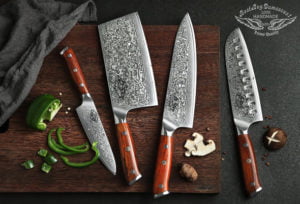




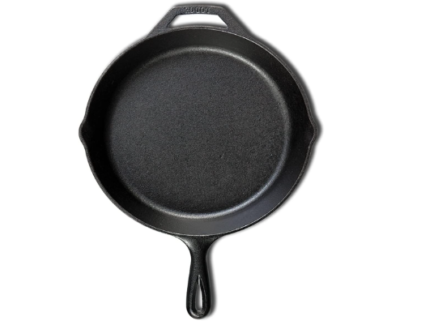
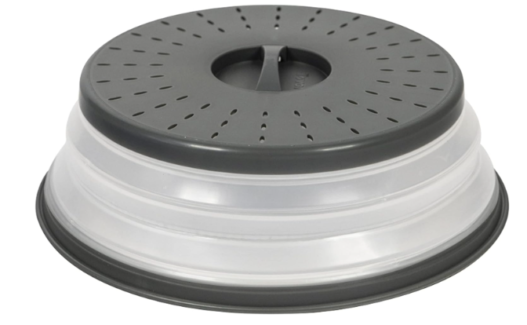
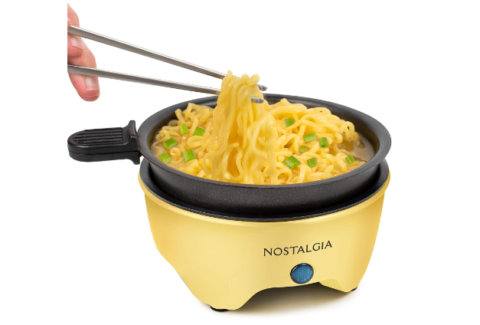
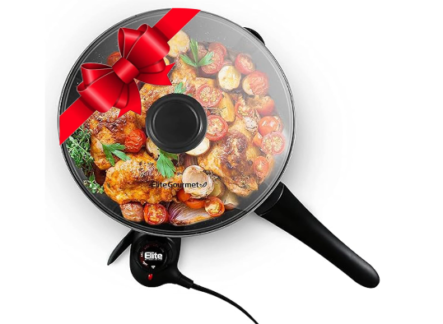
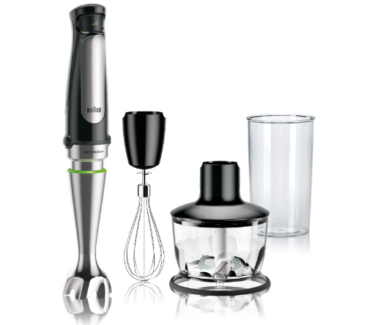
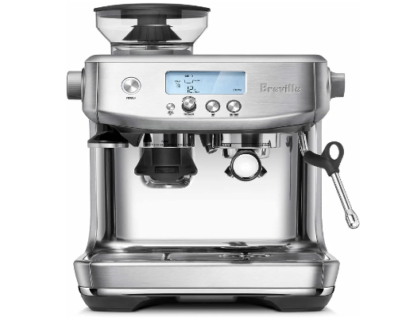
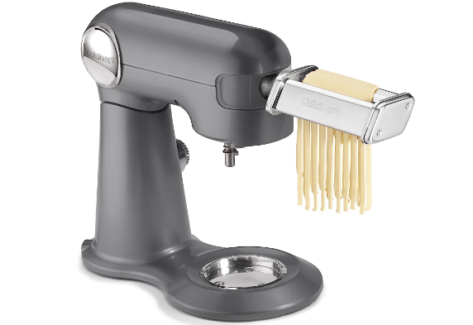
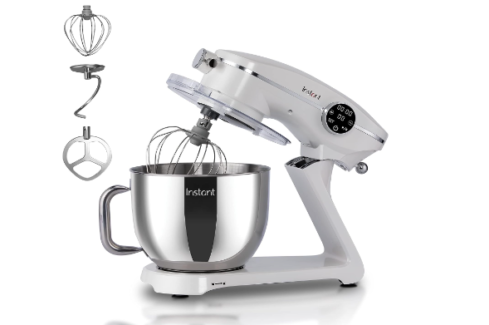

That is a good tip especially to those fresh to the blogosphere. Short but very precise information… Many thanks for sharing this one. A must read post!
Having read this I thought it was rather enlightening. I appreciate you spending some time and effort to put this information together. I once again find myself spending a lot of time both reading and posting comments. But so what, it was still worth it.
Your style is unique compared to other people I have read stuff from. I appreciate you for posting when you have the opportunity, Guess I’ll just bookmark this blog.
This is a really good tip particularly to those fresh to the blogosphere. Brief but very accurate information… Thanks for sharing this one. A must read post.